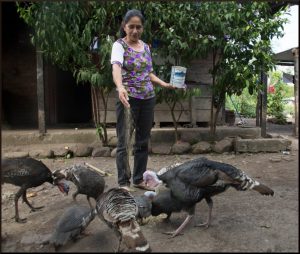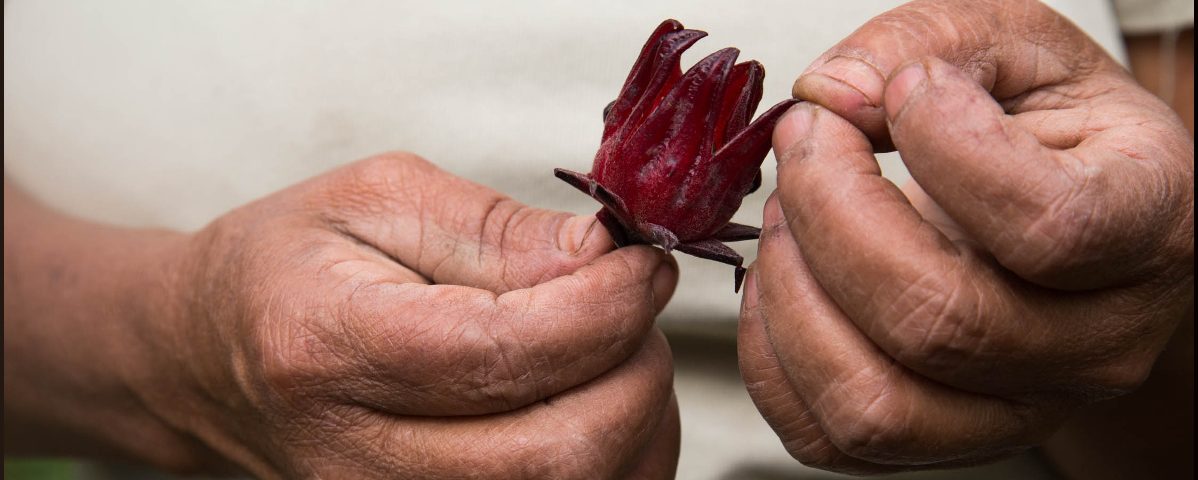by Chuck Kaufman, published on NicaNotes, February 26, 2020
When we hear the word sanctions, most Latin America solidarity activists think immediately of Venezuela. But Nicaragua is also the target of unilateral coercive measures illegally imposed by the US and the most serious sanction, the NICA Act, can’t be blamed on the Trump regime since it was imposed by Congress. Unilateral sanctions are illegal under both the UN and OAS Charters. Alliance for Global Justice is partnering with Friends of Latin America, a local committee in the Washington, DC region, to target both the Trump regime and Congress with a petition and letters to Congress demanding an end to illegal sanctions against Nicaragua.
The Trump regime has sanctioned a number of individuals, such as Vice President Rosario Murillo and functionaries in the Sandinista government, police, and army. These sanctions have an impact beyond the individual sanctioned because banks, importers, and potential investors are worried that any transaction they conduct with Nicaragua could be found to violate US sanctions resulting in loss of business with the world’s largest economy or even multi-million dollar fines.
 The Nicaraguan people rejected the US-funded coup attempt in 2018 and the economy is recovering toward pre-coup levels, but US sanctions create uncertainty internationally. From experience we know it is harder to wire money to Nicaragua than it was before the coup and any business has to think twice before investing in new factories or expanding current ones. It is indicative of the US’s fading influence that there is as much post-coup investment as there is!
The Nicaraguan people rejected the US-funded coup attempt in 2018 and the economy is recovering toward pre-coup levels, but US sanctions create uncertainty internationally. From experience we know it is harder to wire money to Nicaragua than it was before the coup and any business has to think twice before investing in new factories or expanding current ones. It is indicative of the US’s fading influence that there is as much post-coup investment as there is!
Nicaragua Investment Conditionality Act (NICA Act) was passed by Congress and signed by the president in 2018 after the US-sponsored coup failed to dislodge the democratically-elected government of President Daniel Ortega. Its purpose was to cut Nicaragua off from loans by the multilateral lending institutions such as the World Bank, International Monetary Fund, Inter-American Development Bank (IDB) and Central America Bank for Economic Integration (CABEI).
The results of the NICA Act have been ambiguous. The Act requires US governors at the multilateral lending institutions to vote against loans or grants to Nicaragua. The US holds effective veto power at the World Bank and IMF which make decisions by consensus. But the IDB, before the NICA Act was passed, changed its procedure to approval by majority vote and it has made several loans for health, technology, and infrastructure to Nicaragua in the past six months, most recently in January 2020. CABEI also has made several loans to Nicaragua.
Since Nicaragua “graduated” from the IMF’s Highly Indebted, Poor Countries Initiative (HIPC) it no longer needs or wants structural adjustment loans from the IMF with their many conditions. However, the IMF continues to monitor Nicaragua’s economy and issues periodic reports. The IMF and other lenders have repeatedly praised Nicaragua for its effective use of international grants and loans to reduce poverty and stabilize the economy. Most recently the IMF staff report included the following statement:
“3. Strong buffers and the authorities’ determined macroeconomic policy response to the very difficult circumstances helped avoid a downward economic and financial spiral.”
So the main effect of the NICA Act has been on the World Bank. The effects were not noticeable at first because projects in the pipeline were not impacted by the NICA Act. However, the pipeline has now emptied out and the lack of new projects is outrageous considering that that every lender agrees that Nicaragua has one of the best records in to world for effective use of poverty reduction and infrastructure loans and grants without the corruption that has negatively affected international aid in so many parts of the world. Sources in the World Bank have hinted that there might be new projects in the works for Nicaragua despite the NICA Act. We will keep an eye on those developments.
Sen. Patrick Leahy’s senior Foreign Policy Aide, Tim Rieser, assured us that the NICA Act would actually not cost Nicaragua any lost loans because there was an exemption for “poverty reduction projects” in the Act. Leahy’s support allowed the NICA Act to pass by unanimous consent in the Senate, as it did in the Democrat-controlled House. Rieser’s assurances do not seem to have been valid, although it will be good news if World Bank project grants begin to flow again.
 Regardless of how effective US unilateral coercive measures are now against Nicaragua, we can see in the real-time examples of Venezuela, Iran, and North Korea how truly devastating an unrestrained sanctions campaign could be. That is why Alliance for Global Justice is part of the national Sanctions Kill! Coalition and why we created the Manitos Children’s Fund to buy beans and seeds from Nicaraguan cooperative farmers and donate them through the Venezuelan chapter of Via Campesina for food for children and their families affected by US Sanctions.
Regardless of how effective US unilateral coercive measures are now against Nicaragua, we can see in the real-time examples of Venezuela, Iran, and North Korea how truly devastating an unrestrained sanctions campaign could be. That is why Alliance for Global Justice is part of the national Sanctions Kill! Coalition and why we created the Manitos Children’s Fund to buy beans and seeds from Nicaraguan cooperative farmers and donate them through the Venezuelan chapter of Via Campesina for food for children and their families affected by US Sanctions.
Friends of Latin America has developed a Petition and Letter Writing Campaign focused on Trump and Congress demanding that unilateral sanctions against Nicaragua be dropped as well as that the State Department withdraw its travel warning discouraging US travelers from visiting what is actually the safest country in Central America, including Costa Rica!
***
You can sign the following petition here!
END THE ILLEGAL SANCTIONS AGAINST NICARAGUA!
In 2018 the US Congress imposed sanctions on Nicaragua, blocking development loans from international financial institutions even though the IMF, World Bank, and Inter-American Development Bank were praising Nicaragua’s use of funds and the effectiveness of its programs. The loans that Nicaragua was receiving were improving conditions for ordinary Nicaraguans through poverty reduction, education, health care, infrastructure development, and economic growth during an 11-year period in which GDP grew almost 5% annually. This prosperity was widely shared in the country that has Latin America’s second-most egalitarian economy (World Bank, 2017).
The impact is compounded by additional Trump administration sanctions against Nicaraguan banks, companies, and individuals in an effort to isolate Nicaragua’s economy from the international community. It is part of a U.S. strategy of using its dominance of the international financial system to isolate governments it doesn’t like, thereby punishing one-third of the world’s population. In Nicaragua the initial effect is to discourage direct foreign investment and stifle businesses that use imported components and software.
The sanctions are to remain in place until the U.S. State Department unilaterally determines that the country meets its definition a democratic government.
The United Nations has declared that such “unilateral coercive measures” are illegal because they punish an entire population for disagreements between governments. Sanctions have been proven to cause suffering and death around the world and are a form of warfare.
Finally, the U.S. State Department’s website is wielded as a weapon to discourage travel to Nicaragua and further damage the economy by hitting the tourism industry. Claims that the country is unsafe, particularly for Americans, are not only false and detrimental to Nicaraguans, they also maliciously deceive Americans to deprive them of their right to visit the country and judge it for themselves.
Please sign our petition to tell the U.S. government to end the immoral sanctions against Nicaragua!
***
You can also have this letter sent to your Representative and two Senators or substitute your own letter. Go to this link.
Dear Member of Congress:
As an American citizen I condemn the immoral sanctions imposed on Nicaragua and urge Congress and the Trump administration to immediately lift the sanctions against Nicaragua. The United Nations has called these “unilateral coercive measures” illegal.
I challenge the belief that my government can decide what constitutes “democracy” in another country. Punishing an entire population through the blunt instrument of sanctions is morally reprehensible because it disproportionately affects the most vulnerable—children, the sick, and poor people. Nicaragua poses no threat to the United States and the Nicaraguan people are the ones to decide what kind of government they should have.
The U.S. State Department should also correct its website to show that Nicaragua has the lowest violent crime rate in all of Central America, indeed one of the lowest in the Western Hemisphere, as documented by various U.N. agencies.
Sincerely,
Chuck Kaufman is National Co-Coordinator of the Nicaragua Network/Alliance for Global Justice.
